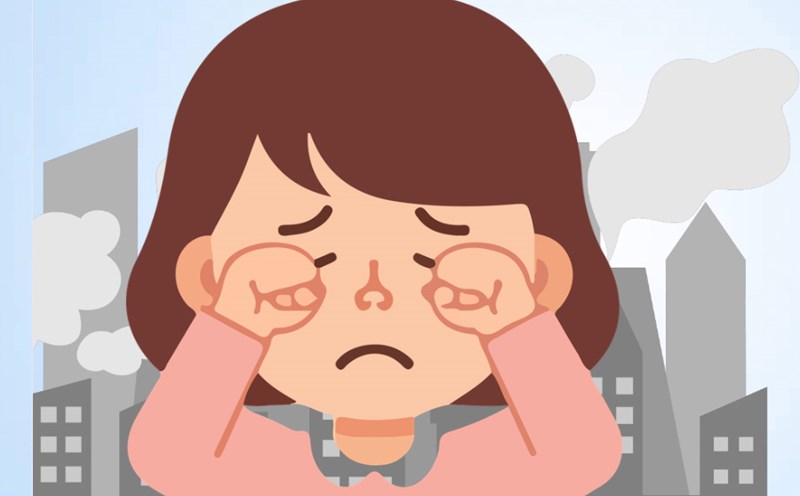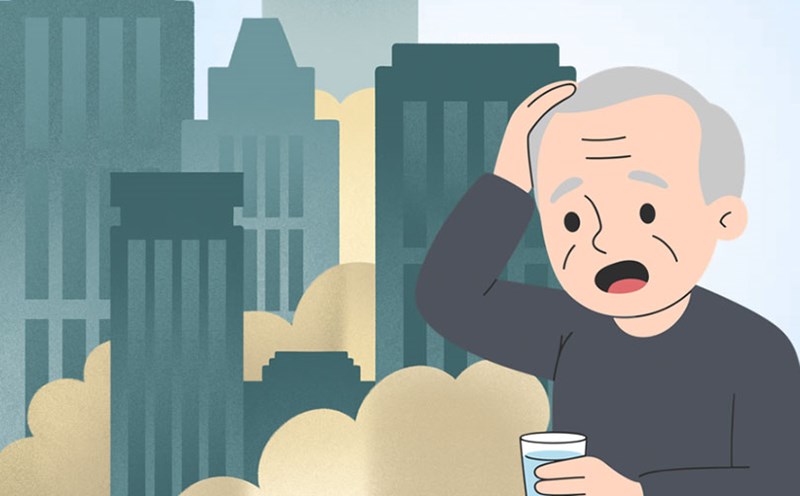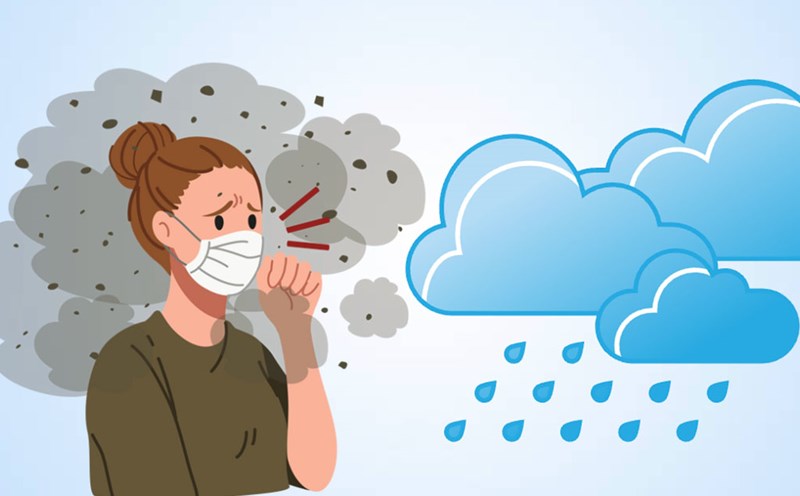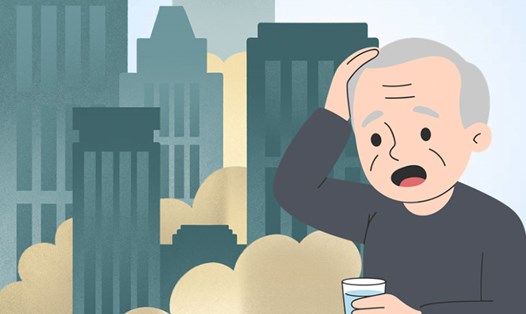Air pollution and cold weather
According to the Arthritis Association of India, in winter, the amount of fine dust (PM2.5, PM10) and pollutants such as nay nayosite and sulfur dioxide often increases. When inhaled, these substances enter the bloodstream and stimulate the body to release inflammatory substances. This inflammatory response can cause tissue around joints to swell, pain, and harden.
In addition, low temperatures and high humidity also cause blood vessels to constrict, reducing blood circulation to muscles and joints. When blood flow decreases, joint lubrication is less, making joints less flexible and prone to pain during exercise. Therefore, many people often feel whole body pain on cold days or when pollution increases.
Pollution also reduces joint self-defense
Prolonged air pollution can weaken the immune system, causing the body to overreage to inflammatory factors. In people with chronic arthritis, osteoarthritis or gout, this condition can easily make pain worse. Not only the elderly, young people who work a lot outdoors or often inhale polluted air can also experience joint pain and muscle fatigue, especially in the morning or after being outdoors for too long.
How to reduce pain and protect joints in polluted winter
Keep your body warm
- Dress warmly, especially the knees, neck, shoulders and palms.
- Do not take a bath in water that is too hot or go out suddenly after bathing.
Limit exposure to polluted air
Avoid going out early in the morning and late at night, when the dust is highest.
- Wear a PM2.5 mask when traveling outdoors.
- Use an air purifier or plant trees indoors to improve the living environment.
Stay hydrated and eat anti-inflammatory
- Drinking enough 1.5-2 liters of water per day helps lubricate joints and eliminate toxins.
- Eat plenty of green vegetables, fatty fish, walnuts, flaxseeds a source of omega-3 that help reduce inflammation.
- Limit foods high in oil, refined sugar and caffeine, as they easily increase the inflammatory response.
Gentle exercise
- Maintain indoor exercises such as yoga, stretching, slow walking or light weight training.
- Regular practice helps maintain joint flexibility and increase blood circulation.
- Do not overtrain or exercise outdoors in cold weather or strong winds.
Home support measures
- Warm the painful joints to relax the muscles and reduce swelling.
- Soaking your feet in warm water or Epsom salt can help relieve pain and sleep better.
- Keep enough and deep sleep so that the body has time to recover, regulate hormones and reduce inflammation.
The information in the article is for reference only, not a replacement for medical diagnosis or treatment. You should talk directly to your doctor for accurate advice that is suitable for your health condition.











